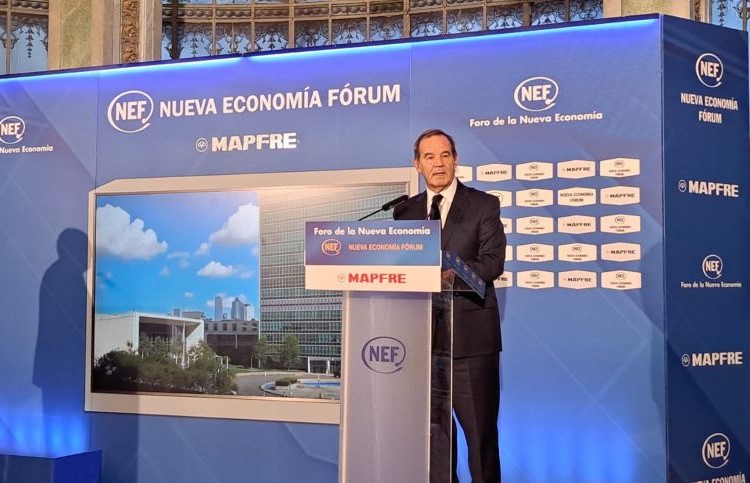The Diplomat
The Ibero-American Secretary General (SEGIB), Andrés Allamand, assured yesterday that “the stars are aligned” in favor of the relaunching of the relationship between Europe and Latin America during the next Spanish Presidency of the EU, while warning the US that the countries of the region are not in a position to reject China’s investments.
Both because of “the opportunity presented to us in the second half of next year, where Spain is going to be the head of the European Union”, and the fact that the High Representative of the European Union “is also a Spaniard”, specifically Josep Borrell, “the stars are quite aligned in terms that we can have a relaunching of the relationship between Europe and Latin America”, declared Allamand during his speech at the New Economy Forum, organized by New Economy Forum and in which he was introduced by the State Secretary for Latin America and the Caribbean and Spanish in the World, Juan Fernández Trigo.
On the other hand, Allamand lamented Latin America’s inability to move towards regional integration due, among other reasons, to the “latent protectionism” that persists in the region. This lack, he said, has resulted in “very low intra-regional trade” of 15%, compared to Europe’s 60%. For this reason, the Secretary General (and former Foreign Minister of Chile during the previous presidency of Sebastián Piñera) expressed his support for the proposal of the presidents of Chile, Gabriel Boric, and Colombia, Gustavo Petro, to “put the issue of Latin American integration back on the table”.
During his speech, the Ibero-American Secretary General also warned that Latin American countries cannot reject China’s investments, as the United States is demanding. “What China has done is to go from being just another trading partner” to being, today, “the main trading partner with the 19 countries, except for Mexico, which for obvious reasons continues to have the United States as its trading partner,” he explained. In addition, China “is the first trading partner of the region, of all the countries” and is increasing “project financing and direct investment”, so that in “any bidding process that opens in Latin America today for wetlands, roads, digital infrastructure, whatever they want”, “there will always be Chinese companies that are bidding and participating”.
Therefore, Allamand criticized the claims of the United States for Latin America to “reject China because of the consequences that the Chinese presence may have in terms of security, in terms of investments”. This is “an absurd request, since the countries are not in a position” to reject such investments, he added.
In any case, he said, “Latin America has a large investment deficit” that cannot be covered by the States because “today they have fiscal constraints” due, among other reasons, to “the efforts they had to make to alleviate the effects of the pandemic” and the low “tax burden of Latin American countries”. For this reason, he said, Latin America “has an enormous field of pending investments and these have to come fundamentally from Europe or the United States”.







